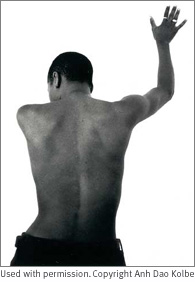Why Gay & Lesbian Teenagers turn to Suicide
Let me make a very important point here - gay and lesbian youth do not want to kill themselves because they are homosexual, but rather, they want to end the pain of constant rejection and abuse. They see no other way out. Gay and lesbian youth believe they are "different" or "abnormal", because society taught them well. It is not their sexual identity that leads to depression and the wish to die, but rather, the experiences of living in such an uncaring world.

- Low self-worth, self-value and self-esteem
- Disturbing beliefs that they are bad, mistakes, sinners, and freaks of nature
- Routine rejection, ridicule, exclusion, harassment, discrimination, neglect, and abuse
- Stigmatised by society, criminalised by law enforcement and pathologised by medical and health care professionals
- Lack of care and support from family, peers, school, church and society
- Tremendous anxiety over fear of exposure
- Painful depression
- Often turn to drugs, alcohol, sexual acting out, running away and/or suicide attempts due to their lack of coping skills, ego strength and support networks
Warning Signs for Risk of Suicide
Suicide Threats
- Suicide notes
- Direct threats ("I'm going to kill myself")
- Indirect threats ("I might as well be dead")
Preoccupation with Death
- Making final arrangements
- Giving away prized possessions
- Talking about death
- Reading or writing about death
- Creating artwork about death
- Reminiscing about the deceased
Changes in Behaviour, Personality or Feelings
- Hopelessness or helplessness ("I'm tired of it all")
- Social withdrawal or isolation
- Lack of interest in activities
- Increased risk-taking
- Heavy use of drugs or alcohol
- Decreased work or academic performance
- Abrupt changes in appearance
- Recent weight or appetite change
- Increased irritability or anger
- Uncommunicative or moody
- Lethargy or exhaustion
- Extreme anxiety
- Crying easily
- Low self-esteem
What Can Be Done?
When qualified mental health professionals work with suicidal clients, they take specific steps to ensure the safety of the patient and provide necessary and appropriate treatment. These steps include a) crisis assessment [to determine the degree of risk and possible need for hospitalisation], b) evaluate the possible need for medication [completed by a medical doctor], and c) psychotherapy [including support, guidance, education, skill development, connection with resources, and friend & family involvement].

In order for gay and lesbian youth to grow and develop healthily and happily they need:
- Care and support from family, school, church and society
- Acceptance for who they are - different but equal
- A positive social network to learn they are not alone in this world
- Opportunities to connect and socialise with appropriate peers
- Access to positive adult mentors and role models
- Given accurate information to dispel myths and stereotypes
- Given positive reinforcement to build self-worth and self-esteem
If only they knew then what they know now
Billy was 30 years old when we met. He told me of how difficult it was growing up in rural Minnesota as a self-identified but closeted gay youth. He talked of how isolated he felt knowing he was different from the others and fearing the abuse that would come if others knew his secret. Without peer and family support, fearing ridicule and rejection, believing he was a "freak", and fearing that he would one day turn out to be "like those drag queens seen on the news", Billy looked for a way out and attempted suicide on two separate occasions.
Luckily he did not succeed and lived to see the day several years later when he miraculously bumped into four other classmates from his high school hanging out in a local gay bar. The five of them agreed to meet up and talk about their common experiences. To everyone's shock, each of them had felt equally depressed and alone and each had tried to kill himself more than twice.
If only they had known of their shared secret back then. If only they had the support of each other. If only� Thank goodness they survived.
Let us be sure to reach out to today's LGBT youth and give them what they need. Let's not allow society to ignore the impact of harassment and discrimination or we may live to regret the consequences. Let's be positive role models and mentors. Most of all let us not allow society to ignore them� to death.











 Printable Version
Printable Version










Reader's Comments
Be the first to leave a comment on this page!
Please log in to use this feature.